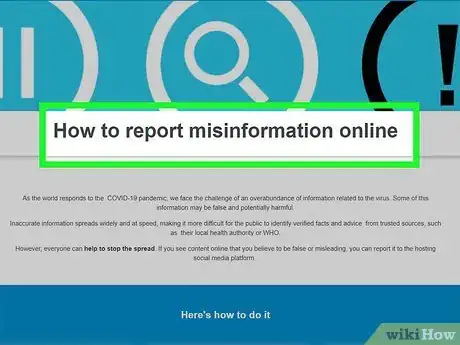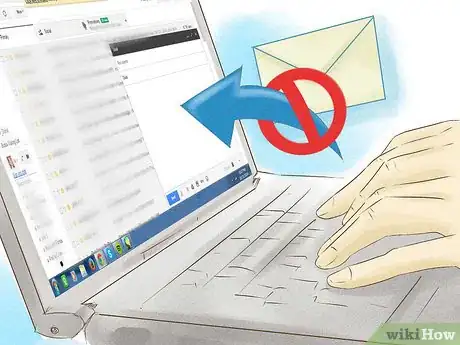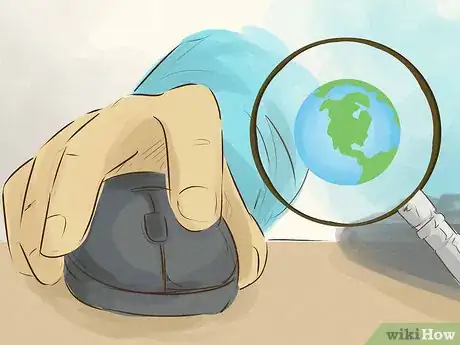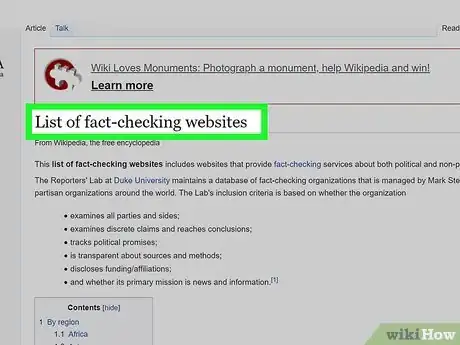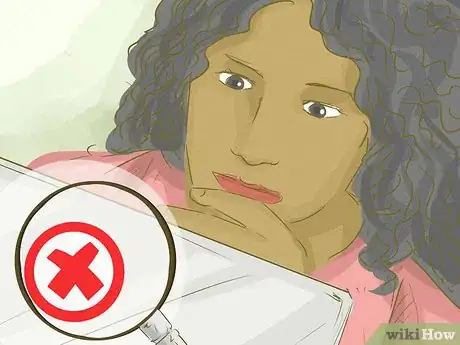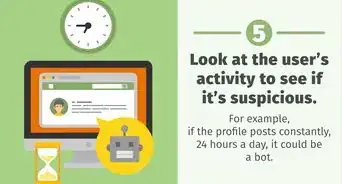This article was co-authored by The Verified Initiative of the United Nations. Verified is an initiative of the United Nations, to provide content that cuts through the noise to deliver life-saving information, fact-based advice and stories from the best of humanity. Led by the UN Department for Global Communications, the initiative also invites the public to help counter the spread of COVID-19 misinformation by sharing UN-verified, science-based content with their communities through articles, videos, and associated media. The initiative is a collaboration with Purpose, one of the world’s leading social mobilization organizations, and supported by the IKEA Foundation and Luminate.
There are 11 references cited in this article, which can be found at the bottom of the page.
This article has been viewed 30,483 times.
With so much false or misleading information out there on the internet, you may be asking yourself what you can do about it. The good news is there’s actually a lot you can do to help stop the spread of misinformation. Most importantly, you can make sure anything you share online is accurate and true so there’s less bad info out there. It’s also important that you turn a critical eye on information that you come across to practice good information hygiene. That way, the info you share doesn’t stink!
Steps
Reporting Misinformation
-
1Respond to the misinformation to alert other people. If you find credible evidence that a post or claim isn’t true, let people know. Reply to the info and explain how it’s false or misleading to prevent people from believing and spreading it around.[1]
- If you have links to articles that discredit the information, add them to your reply as well.
- Respond in a polite, courteous way. If a friend or family member shared something inaccurate, send them a private message instead of putting them on blast in the comments.
-
2Report misinformation so it can be removed. Inaccurate or misleading information spreads quickly online and can make it difficult for people to know who or what to believe. Help stop the spread of misinformation by reporting it to the site that you see it on so it can be flagged and removed so others won’t see it.[2]
- The WHO has a page dedicated to helping you report misinformation on social media platforms. You can find it here: https://www.who.int/campaigns/connecting-the-world-to-combat-coronavirus/how-to-report-misinformation-online.
- You can make a difference. Taking a moment to report bad info can make a significant impact and help prevent it from getting shared around.
Advertisement -
3Avoid sharing information if you can’t confirm it’s accurate. Always investigate information before you share it around so you can make sure it’s accurate. If it’s false or you can’t verify it, don’t share it! You can stop the spread of misinformation by stopping it dead in its tracks and refusing to share it.[3]
- Even if the information is meant to be as a joke, it can be taken seriously. For example, there was a phony report that said that lions were being used to patrol streets in Russia and people believed it to be true, even though it was meant to be a joke.[4]
-
4Delete the offending comment if you are a moderator. If you are a mod on a Discord server, channel, forum, or wiki, you should delete the offending comment and take appropriate action against the user, like disabling their ability to post.
Fact-Checking
-
1See if the source of the information is reputable. Whenever you come across new or questionable info, take a look at the source it’s coming from before you hit the share button. Look up the info at the source to make sure it was actually published there.[5]
- Be skeptical of memes or claims that attribute the information to a source and take a look at the source itself.
-
2Look at the date the info was published to make sure it’s current. Search for the byline, which includes the author’s name or source and the date the information was published. Check the date to see if it’s still current and the information isn’t outdated.[6]
- Old information may no longer be accurate, so always take a look at when an article was published before you share it online.
- Outdated info can sometimes be used as proof of a false claim. For example, if someone posts an article that says there haven’t been any coronavirus cases in San Diego, but the article is from the beginning of the pandemic, then it’s misinformation.
-
3Confirm the information with other sources before you share it. Search online to see if other news outlets or organizations are reporting or talking about the info as well. Major news, especially news about COVID-19, will likely be reported by multiple outlets. If you only see 1 source spreading the information, it could be a sign that it’s false or misleading.[7]
- Some news, such as local news, may only be reported by a few sources.
-
4Use a fact-checking site to verify a claim. Confirm any claims or “facts” that you see in memes, posts, headlines, or anywhere else online before you share them. Use a fact-checking site to see if it’s been debunked. If it has, don’t spread the information around.[8]
- Find a list of fact-checking sites here: https://en.wikipedia.org/wiki/List_of_fact-checking_websites
- If a claim has been covered on one of the sites, read the description to see if it’s completely false or partly true. Misleading information is still misinformation, so don’t allow it to spread around either.
- Fact-checking sites are useful, but they aren’t perfect and they may not have covered the information that you’ve seen.
Evaluating Online Information
-
1Pause to consider why a headline is true or false. A study by Harvard indicated that people who pause to explain why a headline was true or false were less likely to share false information.[9] Whenever you come across a headline, even if it seems legit, take a moment to consider why you think the headline is true. You may find that you’re unsure or that your own biases are influencing you. Avoid sharing info before you take a moment to think about it.
- For instance, if you see a headline that says, “Life found in outer space” take a second to think about it. What kind of life? Where in outer space? You may find that you want to take a quick look to confirm the info before you share it.
-
2Watch out for information that triggers an emotional response. Misinformation is often designed to get a reaction out of you, which will make you more likely to share and spread it. If you find yourself getting angry, upset, or scared whenever you read or see something online, take a moment to consider and investigate it. It may be a false or misleading claim trying to trigger an emotional response.[10]
-
3Be critical of information that confirms your own bias. Whatever your political or philosophical beliefs are, it’s totally natural to have internal biases. If you see a claim or an article that seems to fit your own bias, be extra critical of it before you share it. It can be really easy to spread misinformation if it feels right to you.[11]
- Pause to consider the information before you share it.
-
4Stay away from information that was copied and pasted. Anytime you see claims or information in a post, image, email, or online forum that includes language like “this was copied and pasted” or something like that, steer clear of it. It’s likely the info is unverified and is false or misleading.[12]
- This is one of the big ways misinformation gets shared around easily. Text that is copied and pasted can permeate and spread quickly on social media, group messages, and online forums.
Warnings
- Misinformation, especially about health claims, can be really harmful. Take the time to find out if the info you see online is accurate before you share it.⧼thumbs_response⧽
References
- ↑ https://pen.org/how-to-talk-to-friends-and-family-who-share-misinformation/
- ↑ https://www.who.int/campaigns/connecting-the-world-to-combat-coronavirus/how-to-report-misinformation-online
- ↑ https://newslit.org/tips-tools/information-hygiene-sanitize-before-you-share/
- ↑ https://apnews.com/article/archive-fact-checking-8679310226
- ↑ https://library.bridgew.edu/c.php?g=590539&p=4086409
- ↑ https://www.factcheck.org/2016/11/how-to-spot-fake-news/
- ↑ https://abcnews.go.com/US/ways-spot-disinformation-social-media-feeds/story?id=67784438
- ↑ https://middlebury.libguides.com/internet/fact-checking
- ↑ https://misinforeview.hks.harvard.edu/article/pausing-reduce-false-news/

